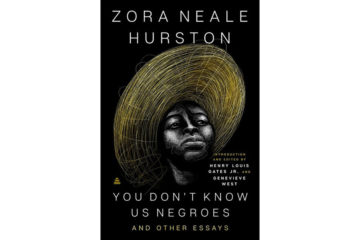Arielle Gray in The Christian Science Monitor:
 “Negro folklore is not a thing of the past,” Zora Neale Hurston wrote. “It is still in the making.”
“Negro folklore is not a thing of the past,” Zora Neale Hurston wrote. “It is still in the making.”
A new collection of Hurston’s essays and stories, edited and introduced by Henry Louis Gates Jr. and Genevieve West in “You Don’t Know Us Negroes and Other Essays,” seems to prove her right. One hundred years ago, Hurston was attending Howard University, a historically Black college, as a young writer. Now a century later, this collection re-contextualizes both Hurston the writer and Black life in American culture.
Born in 1890s Alabama, Hurston spent her life observing Black people in her community and beyond. Through both her fiction writing and her anthropology work, she developed new ways of conceptualizing Black language, music, and culture. She insisted on capturing the nuances of Black people in the Americas and often used Black vernacular, or what is now called African American Vernacular English, in her writing. Her 1937 novel, “Their Eyes Were Watching God,” was initially panned by her contemporaries, who criticized it for its primary use of AAVE.
More here. (Note: At least one post throughout the month of February will be devoted to Black History Month. The theme for 2022 is Black Health and Wellness)
